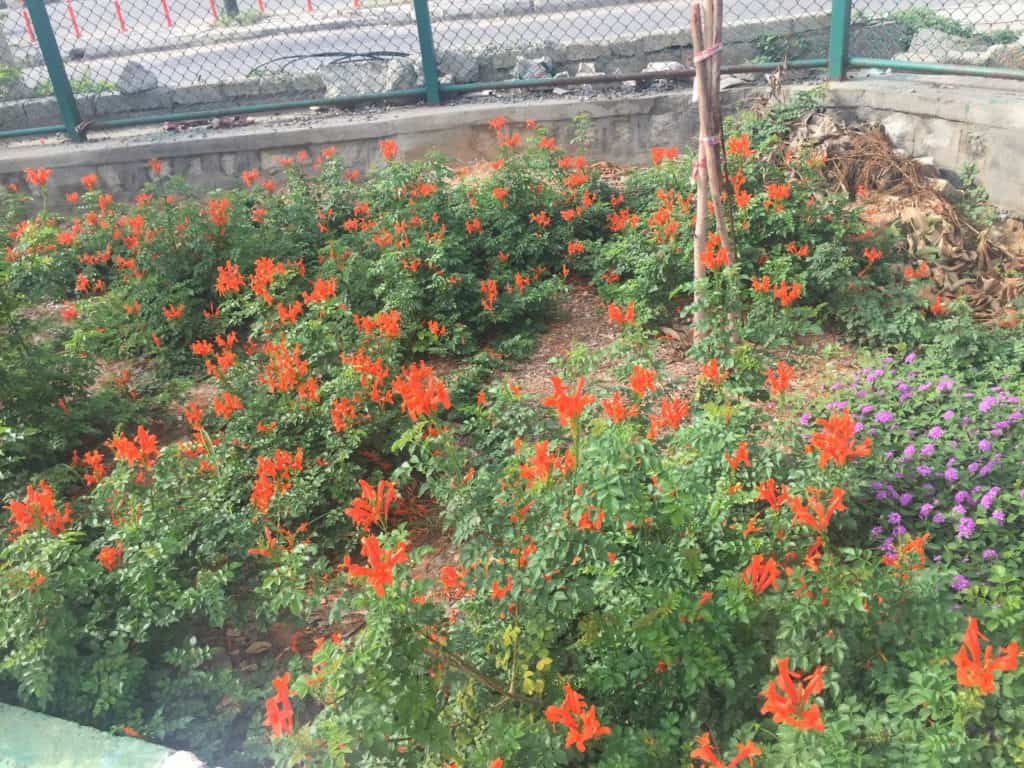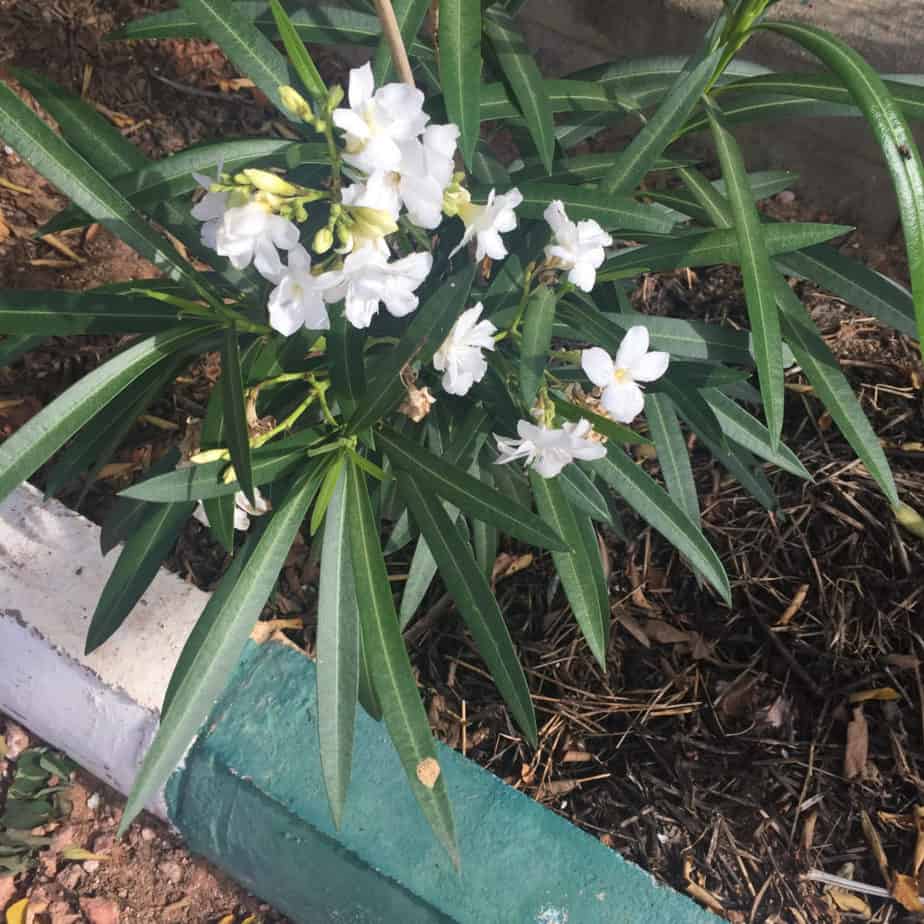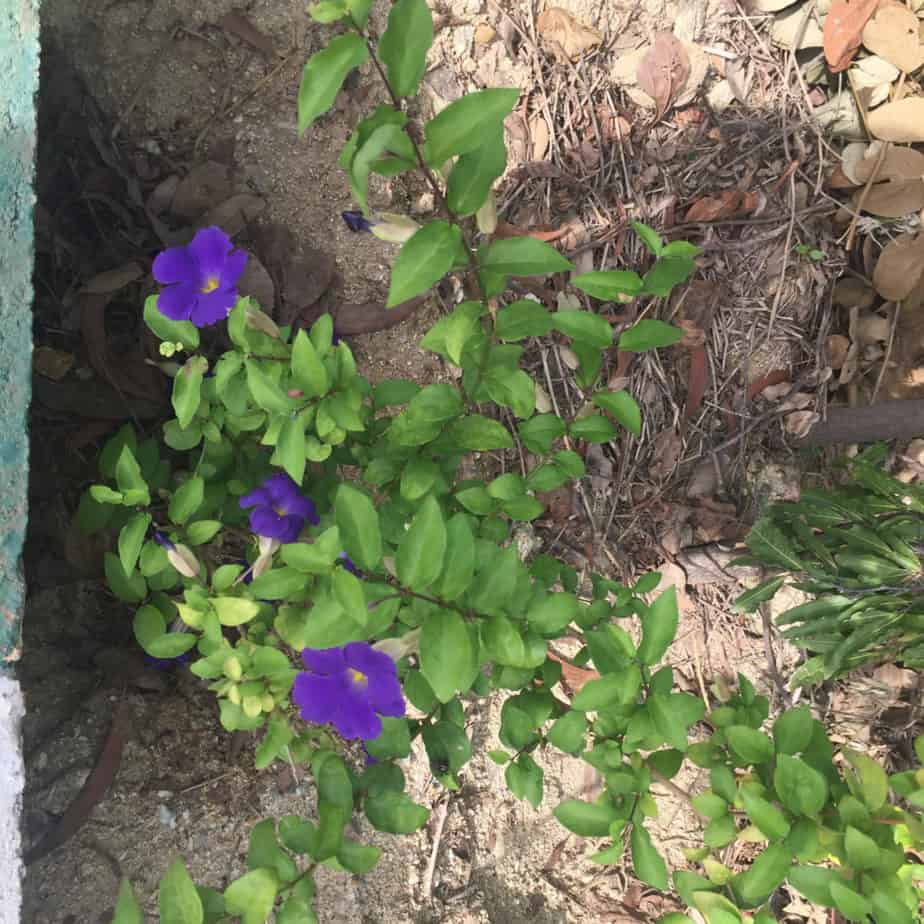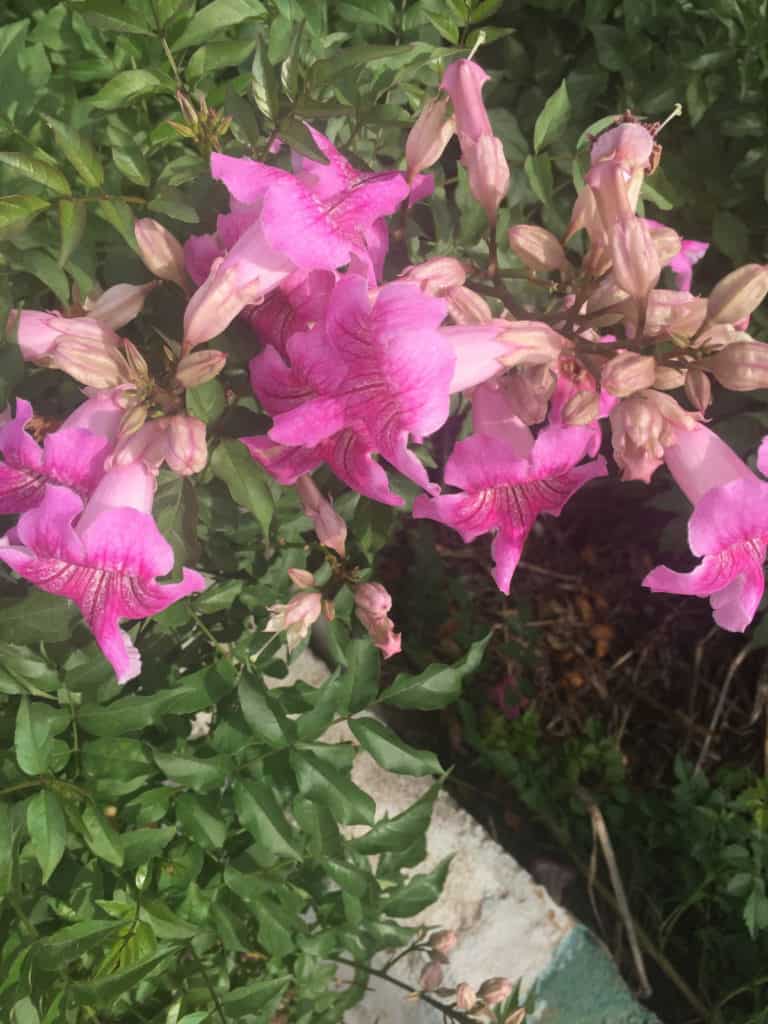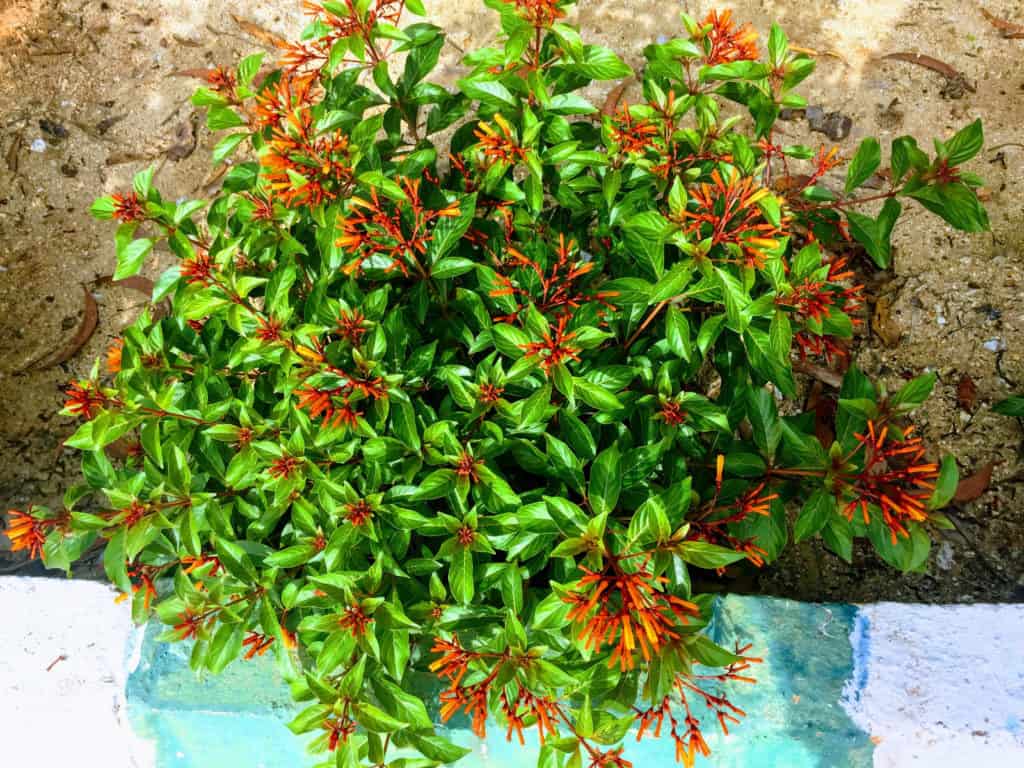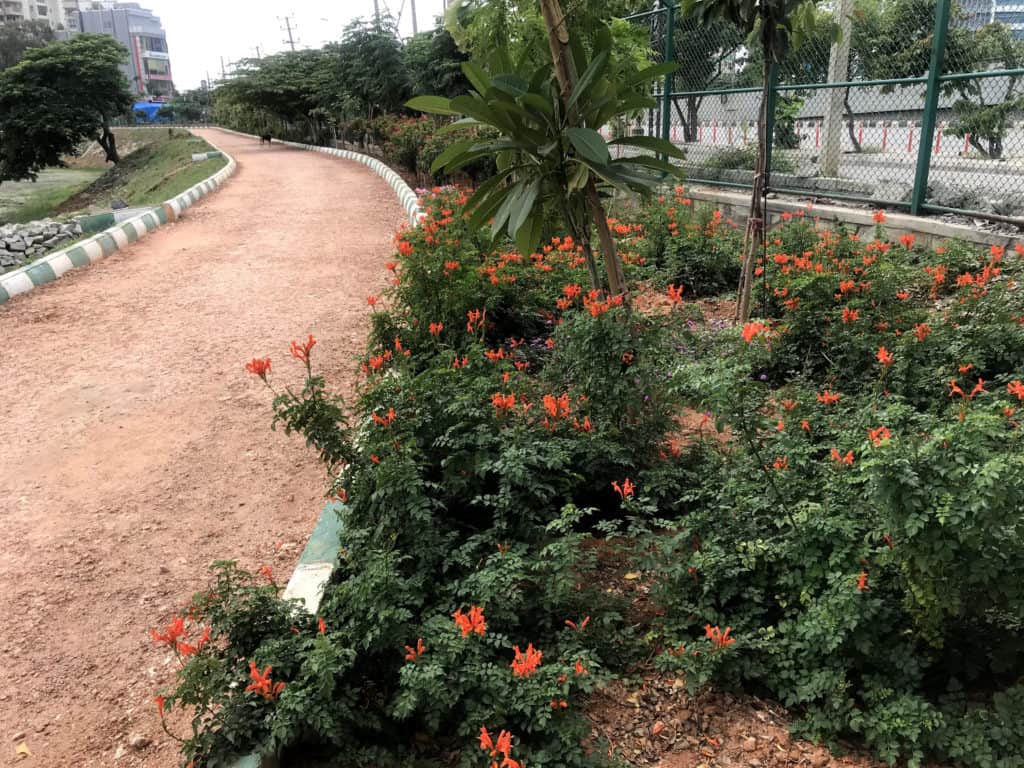
If you go to Iblur lake today, you will notice phenomenal changes from a year ago. Those teeny-weeny plants that hundreds of volunteers planted since last year, now make up a lush green wall around the lake bund.
Young, tall teak trees look out majestically even as flowery shrubs show off their splendour. This year has so far been good for the lake. The lockdown meant that it got a breather from pollution, and the absence of people gave unbridled space and time for flora and fauna to make this lake their home. Gardeners, but for a brief one-month lull, worked hard to ensure that the rugged beauty of the lake and its environs are enhanced.
In early June, we had a large effort to rid the lake of weeds, and as a result the water looks clean now. Even during the early summer months of March and April, the lake was never dry, thanks to off-seasonal rains. And now, the tunnel boring work across Outer Ring Road (ORR) is generating a steady stream of water which is being let into the lake.
The lake’s island looks healthy, though a minor shave to the Singapore Cherry trees there would help the Ficus trees grow rapidly.
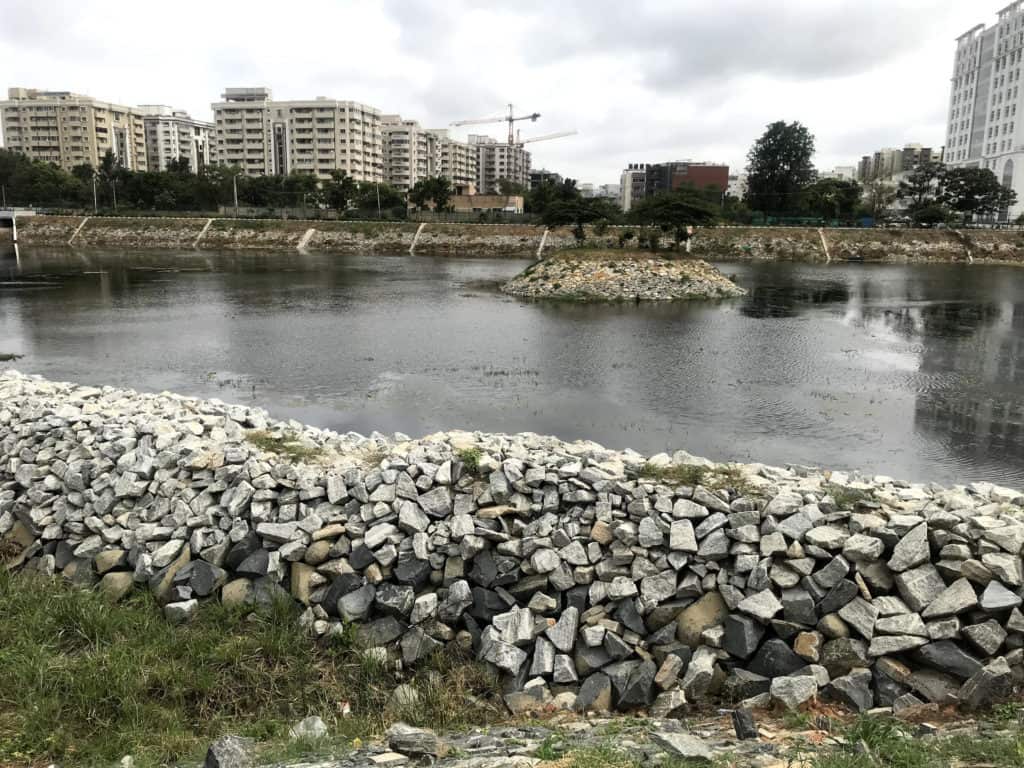
About seven months ago, a pair of ducks and coots had made the lake their home. Now there is a colony of 30 of them. Add egrets, herons, and some cormorants, and we have a fabulous ecosystem growing.
Here are some beautiful pictures of the flora at Iblur lake:
We will soon be working on creating a urban (Miyawaki) forest adjacent to Iblur lake, near DNR Suncity apartment. Around this time next year, we hope to have a long strip of dense jungle right in the midst of this concrete jungle called Bellandur. Citizens interested in participating in this initiative can write to us at ibblur.lake@gmail.com by June 28, stating how they would like to contribute.
STP work at the lake has recommenced, and most likely, starting August, it will become one more source of water for the lake. Ahead of that, we hope to make the newly-constructed toilets functional. STP works had destroyed some plumbing lines which we will soon fix.
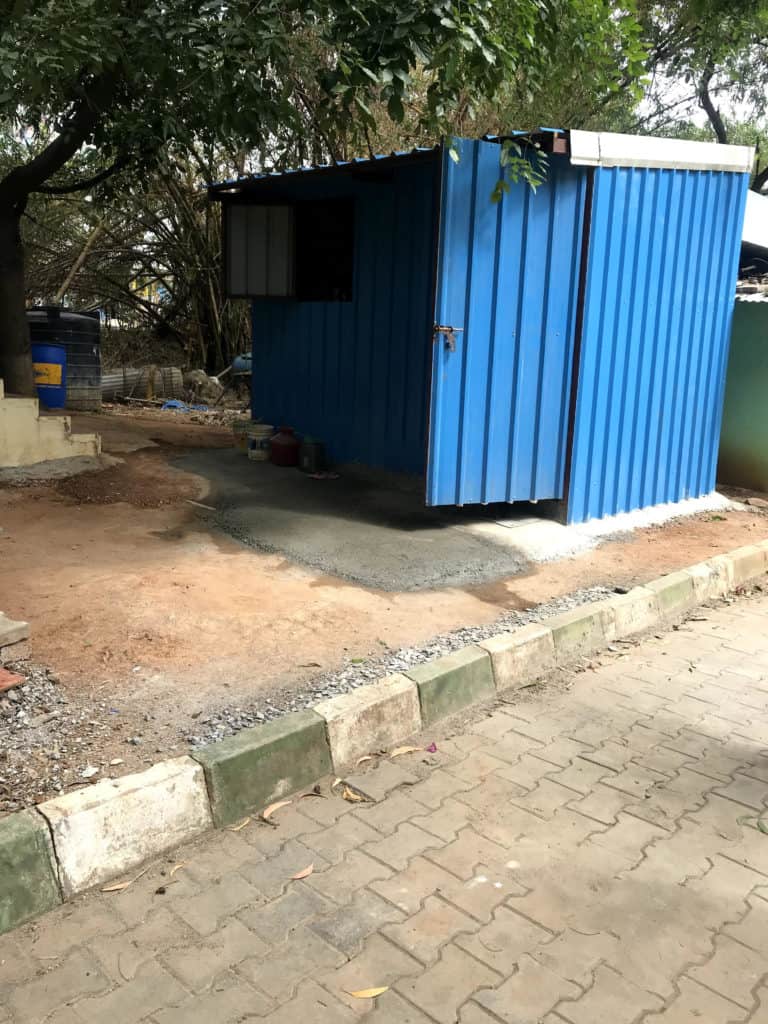
The gardener shed is ready and operational. Homeguards on duty are keeping the park safe, ensuring that visitors comply with COVID-19 rules on physical distancing and masks. Of course, there are occasional less-than-pleasant conversations that these homeguards have to have with lake users on this issue. I only hope we are respectful of government strictures and understand that these homeguards have been asked to ensure compliance.
You can read the December 2019 lake update here:
